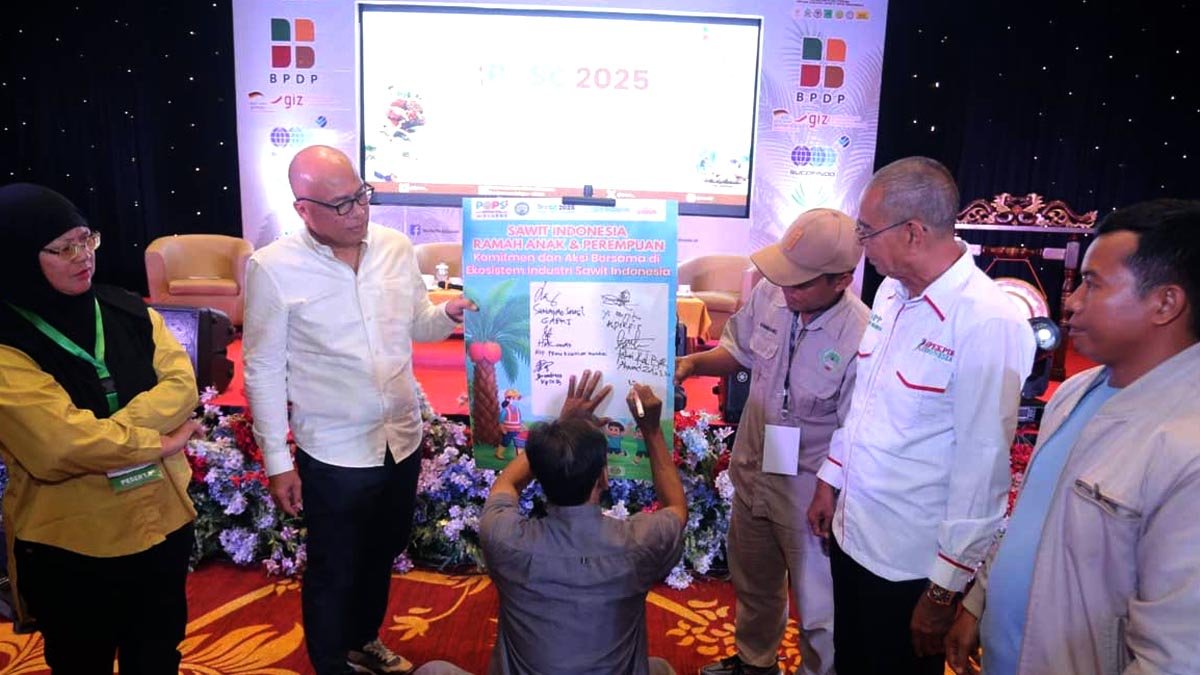PALMOILMAGAZINE, KUBU RAYA — Indonesia’s palm oil industry is vast—its contributions are significant, and so are its challenges. Amid scrutiny and persistent negative perceptions, collaboration has become essential to build a more humane and sustainable image of Indonesian palm oil.
Sumarjono Saragih, Head of Human Resources Development at the Indonesian Palm Oil Association (GAPKI) and Chairman-Founder of Worker Initiatives for Sustainable Palm Oil (WISPO), emphasized that both farmers and companies share equal responsibility in respecting and upholding the rights of people who depend on palm oil.
“Millions of lives depend on this sector. We must safeguard their dignity and future,” Sumarjono told Palmoilmagazine.com on Saturday (Sept 27, 2025).
Currently, smallholders manage around 42% of Indonesia’s oil palm plantations, involving more than 2 million families. The workforce is even larger, with an estimated 16 million people employed. These two groups—farmers and workers—remain the backbone of the industry.
Also Read: European Commission Considers Postponing EUDR Amid IT Concerns
Yet, child labor and women’s protection remain pressing concerns at both national and international levels. Governments, labor organizations, markets, and NGOs continue to spotlight these issues. In response, GAPKI has been actively promoting the Sawit Indonesia Ramah Anak (SIRA/Child-Friendly Palm Oil) and Sawit Indonesia Ramah Pekerja Perempuan (SARAMPUAN/Women-Friendly Palm Oil) initiatives.
The movement is now expanding to include smallholders. During the Indonesia Palm Oil Smallholders Conference & Expo (IPOSC) in Pontianak on September 24, 2025, GAPKI collaborated with seven farmer organizations under the Indonesian Palm Oil Farmers Forum Association (POPSI) to sign a joint commitment to implement SIRA and SARAMPUAN principles.
The initiative aims to reinforce the understanding that children’s presence in palm plantations should not equate to child labor but rather reflect education and generational transfer of knowledge. Children’s rights to play and attend school must always be protected.
For women workers, the same commitment was underlined: no violence, no discrimination, and no exploitation. Instead, women’s roles should be strengthened and encouraged under principles of equality and gender fairness.
Through these efforts, Indonesia’s palm oil sector seeks not only to affirm its path toward sustainability but also to ensure that it becomes a child- and women-friendly industry. Palm oil is expected to serve as both a driver of rural development and a force for human progress on the road to Indonesia Emas 2045. (P2)
